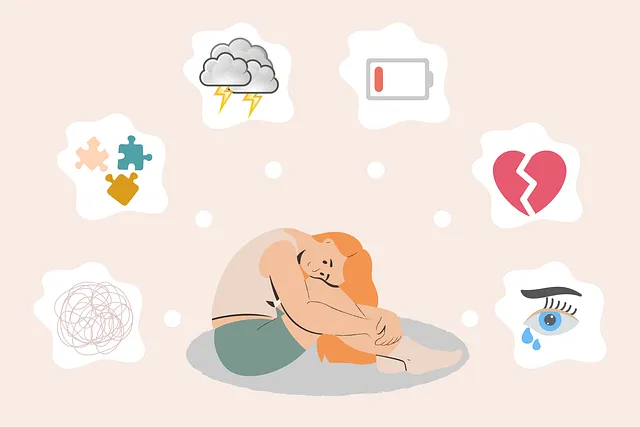Littleton Kaiser Permanente behavioral health services offer specialized Social Skills Training tailored for individuals with mental health conditions. By focusing on empathy building, compassion cultivation, and evidence-based practices, their programs help overcome isolation, enhance coping mechanisms, improve relationships, communication, and overall mental well-being. This culturally sensitive approach uses role-playing, real-life practice, and self-care techniques like mindfulness meditation and journaling to empower patients and reduce anxiety, contributing to improved quality of life.
Social skills training is a powerful tool for managing mental health conditions, fostering connections, and improving overall well-being. In this article, we explore the significance of social skills in mental health care, highlighting the expertise of Littleton Kaiser Permanente Behavioral Health Services. We’ll delve into practical strategies and techniques used to enhance communication, build relationships, and navigate social situations effectively. Discover how these approaches can empower individuals with mental health conditions to thrive in their personal and professional lives.
- Understanding the Importance of Social Skills for Mental Health Management
- The Role of Littleton Kaiser Permanente Behavioral Health Services in Training
- Practical Strategies and Techniques for Effective Social Skills Development
Understanding the Importance of Social Skills for Mental Health Management

In the realm of mental health management, social skills training stands as a powerful tool, often overlooked yet profoundly impactful. Littleton Kaiser Permanente behavioral health services recognize this, offering specialized programs that address the intricate connection between social interactions and emotional well-being. Mental health conditions can sometimes isolate individuals, making it challenging to navigate social situations comfortably. However, understanding and developing essential social skills can significantly enhance coping strategies.
Empathy Building Strategies and Compassion Cultivation Practices are at the heart of these training programs. By fostering empathy, individuals learn to recognize and respond to others’ emotions, creating a supportive network that is crucial for managing mood disorders. These practices not only promote healthier relationships but also enable better communication, reducing social anxiety and improving overall mental health. Effective social skills training can revolutionize how people with mental health conditions engage in their communities, ultimately enhancing their quality of life.
The Role of Littleton Kaiser Permanente Behavioral Health Services in Training

Littleton Kaiser Permanente Behavioral Health Services plays a pivotal role in providing specialized Social Skills Training tailored for individuals managing mental health conditions. Their expert team offers comprehensive programs that address the unique challenges faced by patients, fostering an environment conducive to learning and growth. By integrating evidence-based practices, these services aim to enhance communication skills, build self-confidence, and improve overall social functioning, thereby promoting better mental well-being.
The program’s emphasis on Cultural Sensitivity in Mental Healthcare Practice is a key differentiator, ensuring that training is inclusive and respectful of diverse backgrounds. This approach not only empowers patients but also equips them with the tools to navigate social interactions more effectively, contributing to Anxiety Relief and improved quality of life. Through personalized attention and innovative training methods, Littleton Kaiser Permanente Behavioral Health Services stands as a beacon in the field, offering transformative support for those seeking to strengthen their social skills and mental resilience.
Practical Strategies and Techniques for Effective Social Skills Development

Social skills training is a powerful tool for individuals managing mental health conditions, offering practical strategies to navigate social interactions with confidence and ease. At Littleton Kaiser Permanente behavioral health services, professionals emphasize the importance of learning and practicing these skills in real-life settings. One effective approach involves role-playing scenarios that allow individuals to experience and receive feedback on their communication styles, helping them develop more adaptive behaviors.
Additionally, self-care practices and mental wellness coaching programs play a crucial role in social skills development. Encouraging individuals to engage in regular self-awareness exercises can help them recognize emotional triggers and manage reactions appropriately in social contexts. Techniques such as mindfulness meditation, journaling, and cognitive reframing enable clients to develop resilience and improve their overall mental wellness, fostering more meaningful connections with others.
Social skills training plays a pivotal role in managing mental health conditions, fostering better interactions and enhancing overall well-being. As highlighted by the expertise of Littleton Kaiser Permanente Behavioral Health Services, these programs equip individuals with practical strategies to navigate social situations confidently. By integrating evidence-based techniques into their practice, healthcare providers can significantly improve patients’ social abilities, leading to more fulfilling relationships and a higher quality of life. This tailored approach to mental health management is a game-changer in the field, offering lasting benefits for those seeking support.






